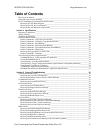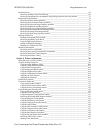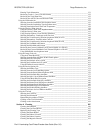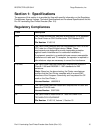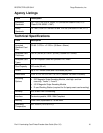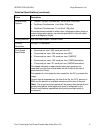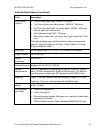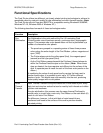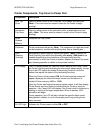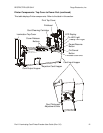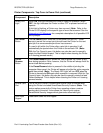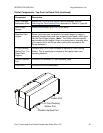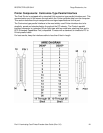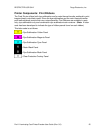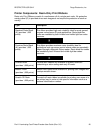
RESTRICTED USE ONLY Fargo Electronics, Inc.
Pro-LX Laminating Card Printer/Encoder User Guide (Rev. 5.0) 19
Functional Specifications
The Card Printer utilizes two different, yet closely related printing technologies to achieve its
remarkable direct-to-card print quality for dye-sublimation and resin thermal transfer. (Note:
The Card Printer will print from any IBM-PC® or compatible running Windows® 95/98/ME,
Windows NT 4.0, Windows 2000 or Windows XP.)
The following describes how each of these technologies works:
Function Description
Dye-
Sublimation
Dye-Sublimation is the print method the Pro-LX Laminating Card
Printer/Encoder uses to produce smooth, continuous-tone, photographic
images. This process uses a dye-based ribbon roll that is partitioned by a
number of consecutive color panels.
The panels are grouped in a repeating series of these three process
colors along the entire length of the Print Ribbon: yellow, magenta and
cyan (YMC).
The Printer always prints the yellow panel (first), the magenta panel
(second) and the cyan panel (third).
As the Print Ribbon passes beneath the Printhead, thermal elements
within the Printhead heat the dyes on the ribbon. (Note: When these
dyes are heated, the dyes vaporize and diffuse into the surface of the
card. A separate pass is made for each of the three color panels on the
ribbon.)
By combining the colors of each panel and by varying the heat used to
transfer these colors, it is possible to print up to 16.7 million different
shades of color. This blends one color smoothly into the next, producing
photo-quality images with no dot pattern.
Resin
Thermal
Transfer
Resin Thermal Transfer is the print method the Printer uses to print sharp
black text and crisp bar codes that can be read by both infrared and visible-
light bar code scanners.
Like dye-sublimation, this process uses the same thermal Printhead to
transfer color to a card from a resin-only Print Ribbon or the resin black (K)
panel of a full color Print Ribbon.
The difference, however, is that solid dots of resin-based ink are
transferred and fused to the surface of the card to produce durable,
saturated printing.



